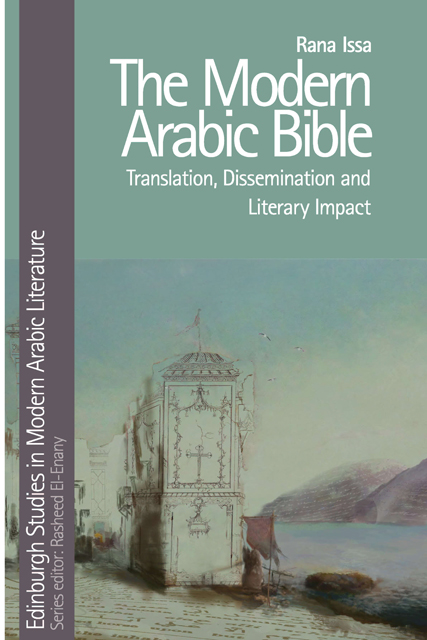5 results in Edinburgh Studies in Modern Arabic Literature

Gendering Civil War
- Francophone Women's Writing in Lebanon
-
- Published by:
- Edinburgh University Press
- Published online:
- 23 November 2024
- Print publication:
- 31 March 2022

Contemporary Arab Women's Life Writing and the Politics of Resistance
-
- Published by:
- Edinburgh University Press
- Published online:
- 17 November 2023
- Print publication:
- 31 March 2023

Latin American and Arab Literature
- Transcontinental Exchanges
-
- Published by:
- Edinburgh University Press
- Published online:
- 18 October 2023
- Print publication:
- 30 November 2022

Arabic Exile Literature in Europe
- Defamiliarizing Forced Migration
-
- Published by:
- Edinburgh University Press
- Published online:
- 06 June 2023
- Print publication:
- 31 October 2022
-
- Book
- Export citation

The Modern Arabic Bible
- Translation, Dissemination and Literary Impact
-
- Published by:
- Edinburgh University Press
- Published online:
- 02 June 2023
- Print publication:
- 31 January 2023

